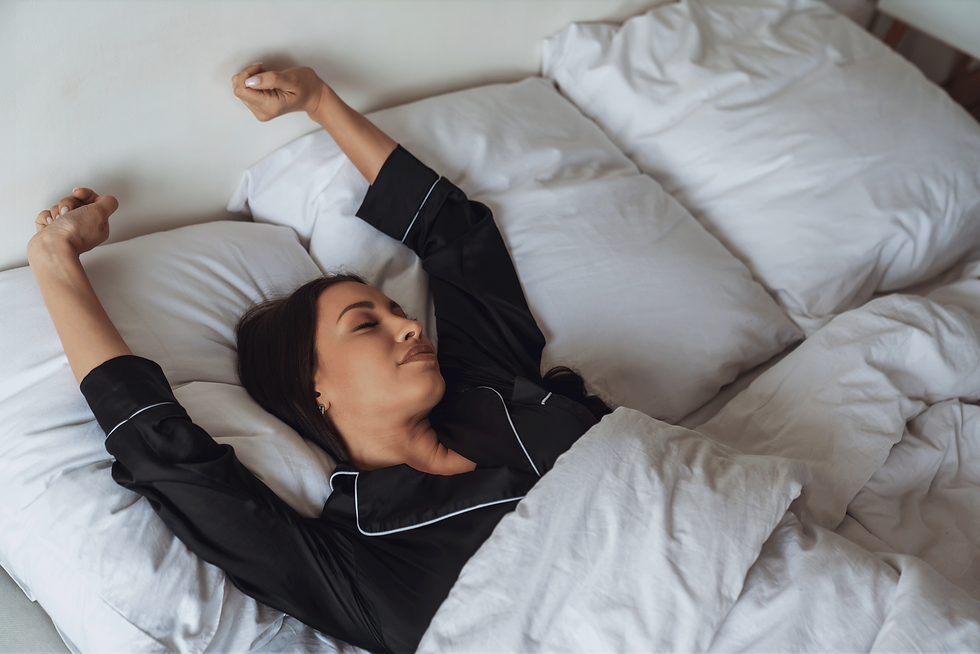How does breathing affect your sleep?
- Rebekah Nutter

- Feb 1, 2023
- 3 min read
Not being able to sleep, or stay asleep, really does feel like torture.
It’s so common!
25-30% of the population has sleep problems, which is huge. On top of that, there’s another huge part of the population who wake up after a full night’s sleep feeling like they haven’t slept at all, they waking up feeling exhausted. On a day-to-day basis this is what I see most frequently coming into my practice.
One of the first things I would look at when someone comes in to see me about their sleep, is how are they breathing. The way we breathe throughout the day, as well as at night, will absolutely affect how you sleep.

Some of the key signs to see if your breathing is affecting your sleep:
Waking up with dry mouth
Snoring
Asthma triggered in the middle of the night
Waking up with a stuffy nose
Coughing
Going to the toilet a couple of times through the night, for kids this might include bed wetting
Nightmares
And again one of the simplest clues is waking up feeling like you haven’t slept even though you’ve had a full night’s rest
The way we breathe influences the way we sleep for so many different reasons. If we are breathing too fast throughout the day will be reflective of an increased breathing rate at night. How you breathe through the day, or when you’re exercising, or at any part throughout of life is going to affect how you breathe at other parts. If you breathe too fast awake, you will breathe too fast asleep.
Why does this matter?
When we breathe fast it signals the body for action and triggers a response of hyper-arousal state in the body which is a terrible state to sleep in. When we are hyper-aroused the body feels unsafe. From a primal perspective, this looks likes the body remaining hyper-vigilant to protect us from lions or other dangers that might be lurking in the night. You might be able to fall asleep but the body is still tracking the potential dangers.
Rapid breathing and elevated breathing rates affects the way oxygen is absorbed within the body. We can breathe as fast as we possibly can but the faster we breathe the less oxygen our body is going to absorb. I like to think of this like a soft drink that is all shaken up: what keeps the bubbles in a soft drink is carbon dioxide. When you take the lid off that air is released and it goes flat. What we’re doing at night if we breathe too fast, or breathing with our mouths open, is essentially letting all that gas out. We’re de-oxygenating our body and waking up exhausted. We tend to breathe through our mouths, which is the path of least resistance for inhalation, which is easier to get more breaths when we’re breathing to fast.

In order to get effective sleep our bodies need to feel safe, our airways need to be clear, you need all these things going on to have a restful sleep.
If you’re ticking any of these boxes keep an eye out for my other videos with more tips for sleeping better but for now just start thinking about your breath rate through the day – check your symptoms and think about if you’re breathing through your nose or mouth. If you’re mouth breathing simply close your mouth and consciously take slower breaths through your nose.
Doing this will stop your body releasing too much oxygen and will help you gain awareness of your breathing rate.





























Comments